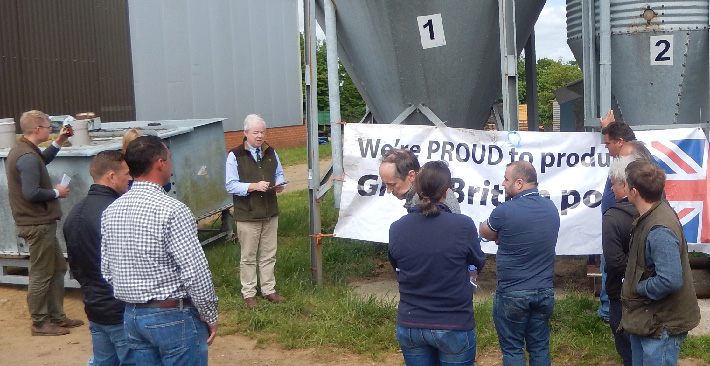A very slightly firmer feel seems to be emerging but there is still a long way to go before the industry gets back in the black. The SPP actually went up by a modest 0.2p for the first time since July last year.
Weekly contribution prices have generally held at similar levels on the week within 126-129p range and it was refreshing to note that the influential German producer price headed north by 3 cents and now stands at €1.43, which is equivalent to 121.5p in our money.
Fresh meat wholesalers are however still reporting indifferent consumer demand and the few spot trades that there were have been in and around 128-130p.
The value of the eauro has remained at generally similar levels to last week, trading on Friday worth 85p but the increase in the German pig price encouraged UK export buyers to lift their bids by a couple of pence with prices heading towards the 70p mark.
Weaner prices remain selective although as previously Red Tractor weaners have been much harder to shift than RSPCA assured with the latest AHDB 7kg average quoted at £35.15 and the 30kg average quoted at £45.85.
Fortunately, the recent bearish trend in global cereal and protein prices continues with London feed wheat futures prices of £160.10/t for March, £161.95p for May and a slightly more heart-warming £148/t for November.
Protein prices are also heading south following reports of significant rises in soya bean planting rates in the US, which may also provide hard pressed UK pig producers with a little relief.
And finally, even though the recent fall in pig prices is levelling out and feed costs are easing a shade, recent reports indicate that during the last quarter of 2018 GB pig producers typically lost in the region of £7 per head at a time when COP levels are estimated to be 156p/kg compared with the SPP currently standing at 137.63p.
As a result, limited funding has been available for spending on essential maintenance and replacements of worn out pig facilities, which in some cases are sorely needed to improve overall proficiency and productivity levels, but with banks showing extreme caution over overdraft levels in the pig industry this is yet another reason why we need to see a significant revival in pig prices sooner rather than later.
However, British pig producers are a resilient lot, but more fingers will have to be crossed rather than burnt while we await the outcome of the current Brexit shambles.




